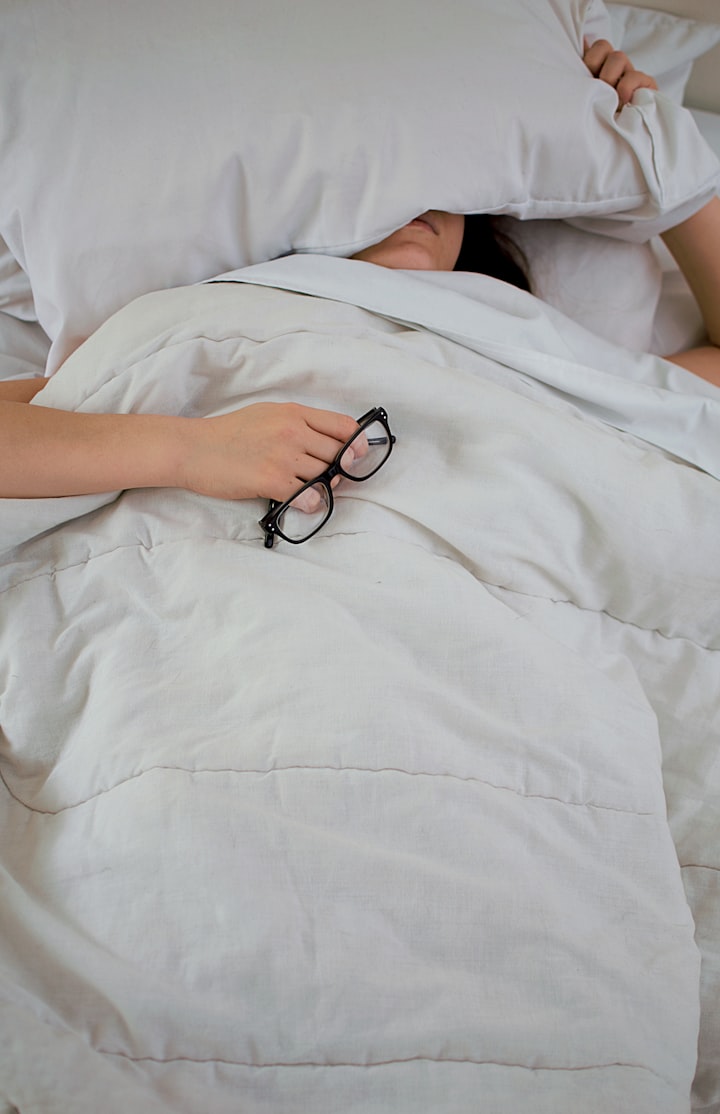
It’s a typical weekday night after yet another exhausting day at work. You drag your weary body into bed to go to sleep. The second your head hits the pillow, you’re wide awake. The thought of not getting enough sleep causes you to toss and turn, making you anxious. You start checking the clock to see the minutes and hour(s) pass by without some shut-eye. Maybe you fall asleep with no problem, but instead wake up in the middle of the night and can’t fall back asleep. You start checking Facebook and Instagram, only waking yourself further and in the morning, you’re nauseous, grumpy, and wishing the day would be over before it's even started.
How Common is Sleep Deprivation?
If you feel that you're the only one not getting enough sleep each night, you're not alone. More than 1 in 3 Americans are not getting enough sleep each night, according to the Centers for Disease Control and Prevention (CDC). Oddly enough, the duration of sleep that an individual receives each night is significantly impacted based on certain factors such as race, employment status, and even one’s marital status. Next time you find yourself having a hard time falling asleep, it could be other occurrences in your life.
We as a society are so busy in our day-to-day lives that we often forget the importance of taking care of ourselves. Even the basic self-care needs like getting enough sleep and eating a well-balanced meal feel as though it's a privilege because we prioritize everything else in life. Not getting enough sleep can ultimately do damage in time. Hallucinations and causing a car accident are both dangerous consequences to not getting optimal sleep each night.
Why is Sleep so Important?
"Sleep coordinates brain and physical function, including hormone regulation, mood, appetite, immune function, and alertness, among other things. Optimizing our sleep can lead to an improvement in our overall health”, Ana Krieger, MD, MPH, Medical Director of the Center for Sleep Medicine at NewYork-Presbyterian and Weill Cornell Medicine, shares with NBC News BETTER.
Lack of sleep affects our brain in several different ways such as the inability to concentrate, think clearly, or process thoughts. Not getting an optimal amount of sleep means not performing our best. An example of sleep deprivation would be having to turn in a big project after working on it all night. As a result of not sleeping and being exhausted, the work on the project was mediocre at best. Unfortunately, the work has to be redone immediately to meet standards, causing potential anxiety and depression to occur. It’s important to remember that one bad night of sleep might not make much of a difference, but a few nights or more and you’re bound to have a domino effect.
How Can I Solve My Sleeping Problems?
No Electronics
There are many tips, tricks, and products to help solve sleeping problems for every kind of insomniac. One of the biggest (and most obvious) tips is to put away all technology. As hard as this is to do, your body will thank you. The blue light emitted from screens such as a cell phone or television restrains the production of melatonin, making it more difficult for your body to fall asleep at night. It’s best to turn off all electronics at least 30 minutes before bed to ensure your body can start winding down to fall asleep.
Reading Before Bed
After swearing off the (obvious) electronics before bed, the best thing you can do is crack open a book and fall asleep in another world. In fact, according to a study from the University of Sussex, just six minutes of reading can reduce stress by up to 68%. Neuropsychologist, Dr. David Lewis conducted exercise and relaxation tests consecutively while measuring the stress levels and heart rate of each individual. Overall, reading was the most effective stress reliever compared with some of the other alternatives:
- Music: 61% stress reduction
- Hot tea/coffee: 54% stress reduction
- Walk: 42% stress reduction
- Video games: 21% stress reduction
Laying down and reading allows you to focus, letting your muscles relax and slowing down your breathing, making you feel calmer. The Sleep Council says, "39% of people who are in the habit of reading before they go to sleep, sleep very well." Reading helps you fall asleep at night and improves your productivity during the day, as well. Our focus while scrolling through social media is limited to a minute or less per topic, but when reading a book, our focus can stay on the plot for hours. This not only helps us improve our concentration, but it improves our attention span within the rest of our daily activities.
Weighted blanket
Weighted blankets have become very popular over the last few years with their list of never-ending benefits, making them perfect for those who have trouble sleeping. These specialty blankets use Deep Pressure Stimulation (DPS), used to relax the nervous system. Weighted blankets are a feeling of a calming euphoria for both the body and mind. They increase dopamine and serotonin levels, creating a calm, secure environment. Weighted blankets also produce more dreams by helping individuals ease into REM sleep (the deepest, most restful sleep where dreams take place).
Between apps and (non-light-emitting) devices, there are endless options to finding the perfect solution for every insomniac. The hardest part is finding what works for you. It may be a trial and error process, but when you find your go-to sleep solution, you will thank yourself. With everything in our lives from work to mental health and even technology, we have to learn how to balance it all and most importantly, know when to get some well-deserved shut-eye.





Comments
There are no comments for this story
Be the first to respond and start the conversation.